Here’s How This Man Lost 10Kg Of Fat in Eight Weeks
Men’s Fitness Editor-in-Chief transformed his body into cover model material. Here’s his story and how you can emulate his results
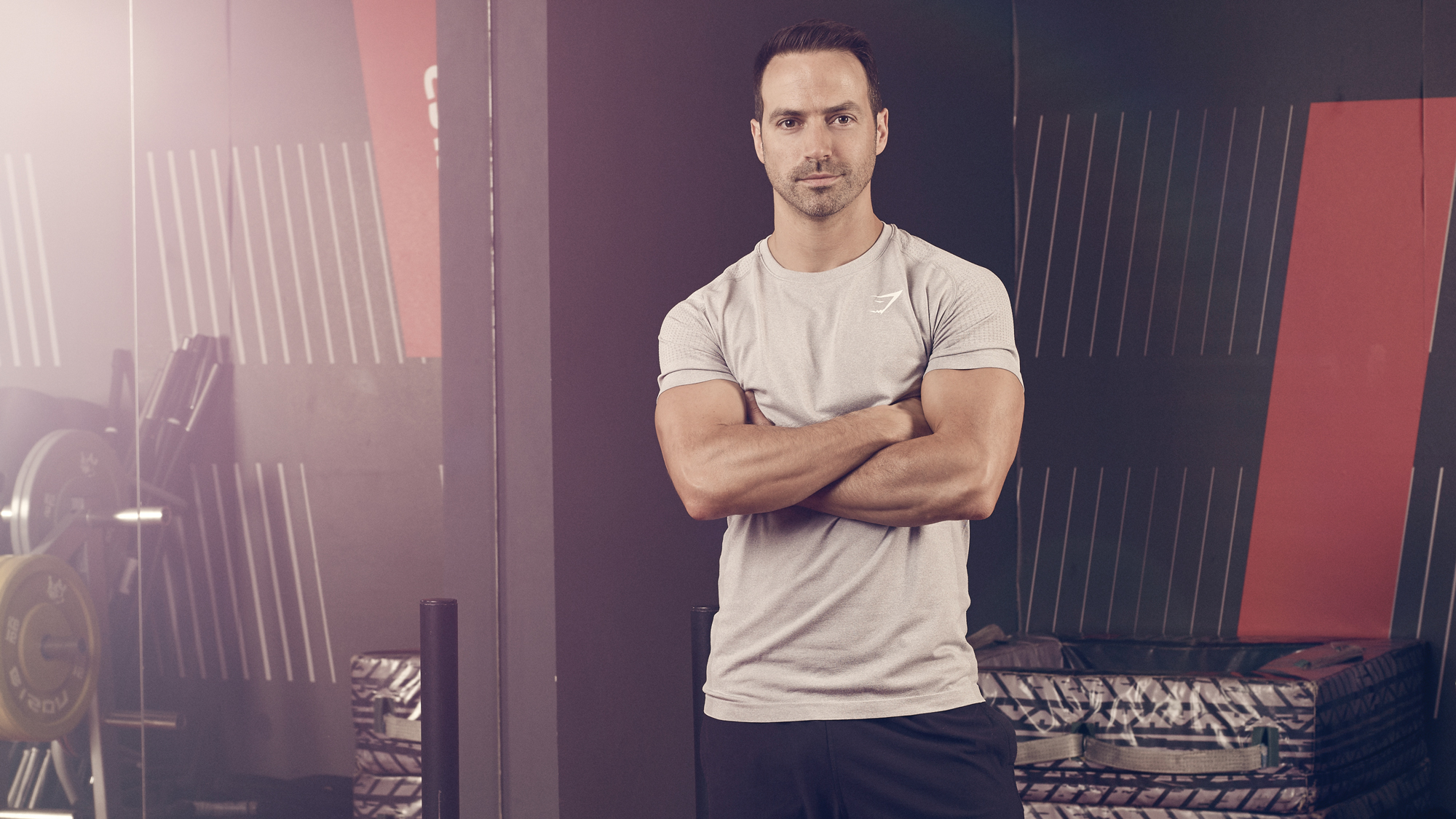
Photographs: Glen Burrows
My name is Jon Lipsey, editor-in-chief of Men’s Fitness magazine and I have a six-pack. That’s not very surprising, is it? You’d expect me to be the proud/smug owner of chiselled abs. In fact, you’d be disappointed if I didn’t have a washboard stomach. It’s just as well, then, that you didn’t meet me eight weeks before I write this because, oh boy, would you have been unimpressed.
You see, two months ago, I didn’t have a six-pack. I didn’t have T-shirt-filling biceps and I didn’t have broad shoulders. I did, however, have a belly. I had love handles too. And big, dark, sleep-deprived circles around my eyes. I was stressed, I had low energy levels and, according to any metric you care to choose, I was overweight.
That’s not something I ever thought I’d write. In my mind, weight issues were always someone else’s problem. In my teens I was skinny, in my 20s I was slim and I floated into my 30s weighing a svelte 69kg at 1.75m (5ft 9in) tall. Then, as my responsibilities grew – I started my own business five years ago and I’m due to become a dad for the first time later this year – so too did my waistline. At 37 years of age, I weighed 80.5kg. Sure, scale weight isn’t the only indicator of health, but I doubt that my lengthy training break added over 10kg of muscle mass.
I could tell you that I got a bit “soft around the edges” but the truth is that I got fat. I ate too much, I said “Fancy a swift one?” too often and I moved too little. It didn’t happen overnight. It never does. And that’s one of the reasons doing anything about it becomes so difficult. What I had to accept, however, was that if my weight gain continued at the same rate then in another seven years, when my child would be wanting to run around and kick a ball in the park, I’d be flirting with a BMI of 30 and about to join the 27% of the British public who, according to figures released last year, are classed as clinically obese.
I didn’t want that to happen, and I desperately wanted to do something about it. There was just one problem. I was absolutely terrified.
Reason to be fearful
Even though I work for a fitness magazine, the thought of doing a body transformation has always scared me. I was scared that I wouldn’t be able to stick to the diet and exercise plan and I was scared that, even if I did stick to it, I wouldn’t get much of a result. I worried that I’d either spend more time in a bar than lifting one, or that my before and after shots would look like a spot-the-difference competition. The final, and perhaps biggest, challenge was that if I failed to make a significant difference to my body shape I’d be exposed as a fraud. Someone who talks a good fitness game but, when it comes to the abdominal crunch, can’t put their muscle where their mouth is.
Get the Coach Newsletter
Sign up for workout ideas, training advice, reviews of the latest gear and more.
Because of that, it was always easier to pretend that it wasn’t happening, to suck in my belly for photographs and to let my fears win. The thing is, I didn’t want my kid to have a coward for a dad, so there was really only one option. It was time to put my body and reputation on the line.
The personal goal for this project was to transform my own physique but the broader ambition was to give the Men’s Fitness reader a plan that would live up to its cover-line claims. I wanted to create an accessible programme that would be the simplest and fastest way to get in shape. So before I started, I established a couple of simple rules to make my experience as close as it could be to the one you’ll have if you want to do the same thing. I decided that I wouldn’t employ a personal trainer and I wouldn’t use a fancy meal-preparation service. It would just be me, the weights and an unswerving determination to steer clear of the ice-cream aisle in the supermarket.
The regime I created consisted of four gym sessions a week within a programme composed of four two-week blocks and a nutrition plan that was big on high-quality protein and veg without cutting out any major food groups or making any food forbidden. So beer and crisps aren’t strictly banned on this plan, but you consume them in the knowledge that they’ll hinder rather than help your progress.
The other significant concept was to gradually ramp up the intensity of the training and the strictness of the diet. Jumping in at the deep end would have been overwhelming and it’s important to realise that navigating your way through a transformation challenge is a skill. As your fitness and commitment develop, so too do the demands of the plan.
Holding back the beers
Once you commit to starting the programme the first week is relatively easy. You’re motivated by the promise of what’s to come, so you attack the sessions in the firm belief that you’re on the path to a brand new body. The nutrition requirements are also manageable – I didn’t have to survive on seeds and lettuce leaves. Instead, the first major change was to ditch alcohol. The reason was pretty compelling. Just two pints of lager contains about 400 calories so if you’re trying to use up more energy than you’re taking in, ice-cold pints become (slightly) less appealing.
The challenge comes when you realise that Britain is unsteadily propped up by alcohol. We use it to celebrate, to commiserate, to de-stress and to mark the end of another week. It’s the lubricant that oils our social wheels. When I met friends for lunch at the end of my first week on the plan, I found a glass of champagne waiting for me on the table. They’d ordered it because they heard I was about to become a dad for the first time. It felt like it would be unfriendly to turn it down so I drank it. A week later I found myself, wine glass in hand, at a relative’s 40th birthday celebration. I could have toasted with a sparking water there too but I guess I didn’t want to. Ultimately you’ll have choices to make during your transformation journey. One glass really won’t make a difference but one a week might, so at some point you have to ask yourself which you want more – the booze or the body.
On the plus side, by the end of the first training block I was already seeing positive changes. I was looking less bloated and I even managed to squeeze into a new belt hole. I also discovered that yogurt and sliced frozen banana offers a passable alternative to ice cream (no, honestly). Perhaps this transformation lark was going to be a flourless cake walk after all.
Food fight
In the second fortnight of the plan the training schedule changes from an initial upper-body and lower-body split to one that focuses on antagonistic supersets, where you do two exercises back to back that target opposing muscle groups, such as your biceps and triceps. It was tough but effective, and I felt stronger and looked more muscular. Joe, MF’s Editorial Director, was joining me for a lot of the sessions and that also had a positive impact. If you can find a training partner, their presence will spur you on. You can encourage each other and, if they other guy has just completed a set, you’re less likely to duck out of the final couple of reps when your turn comes.
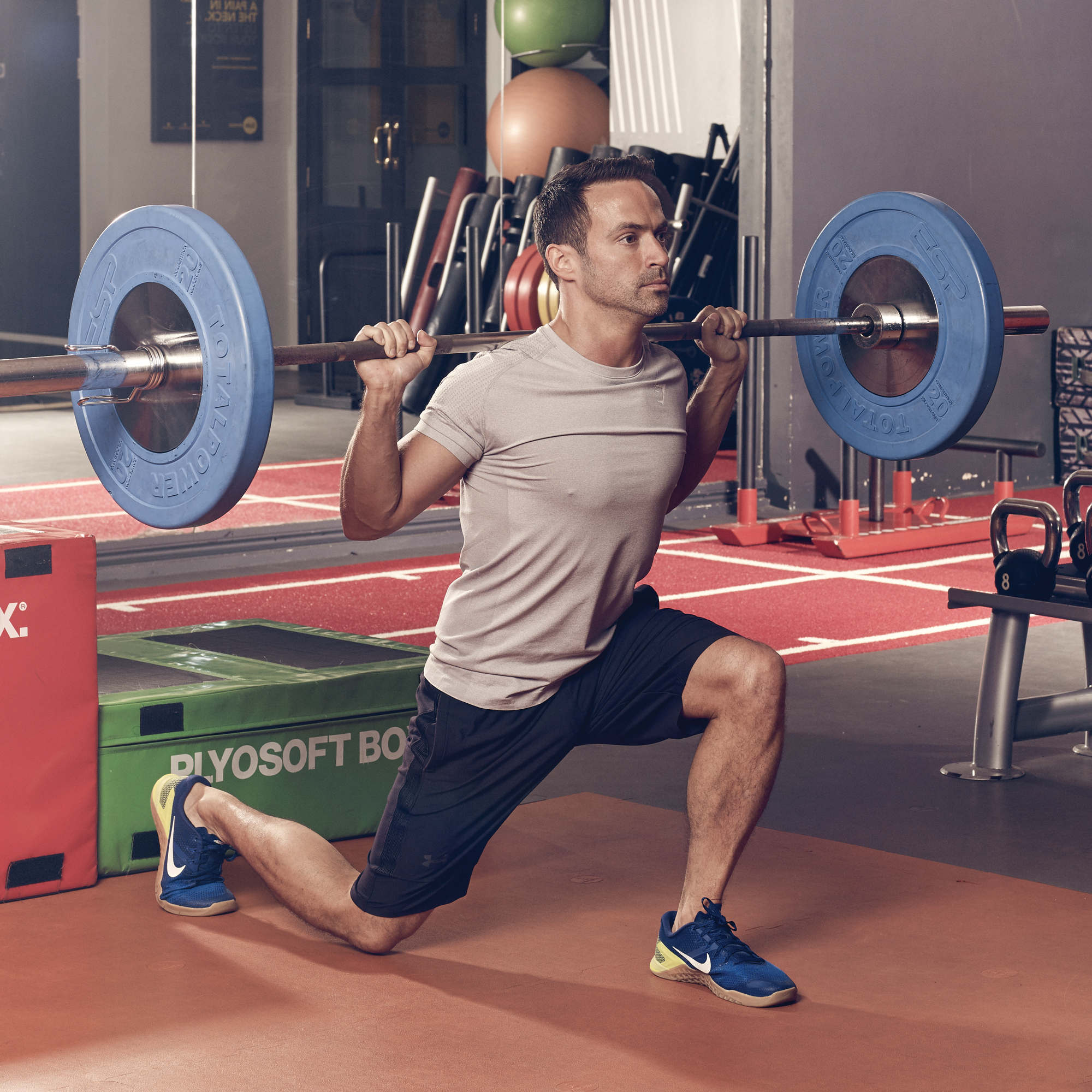
The diet, on the other hand, was a little trickier. I discovered during weeks three and four that my blood sugar and hunger hormone regulation was, er, sub-optimal. Before starting the plan I’d never really paid much attention to what I ate. I kidded myself that because I consumed lots of meat, fish, eggs, vegetables and fruit that my diet was fine. The problem is that I really did eat a lot. And I topped it up with stuff that’s less nutritionally glorious. I also had an aversion to hunger, which meant that as soon as I wasn’t completely full I had a tendency to open the fridge door. I realised that I used fruit to manage my constantly yo-yoing blood sugar levels and, as a result, if I went for any length of time without eating (I’m talking three hours here rather than half a day) I felt terrible. I was also incapable of going for a few hours without a carbohydrate fix.
When I tried to eat in a different way, my brain and body were overtaken by the spirit of an unruly toddler – throwing tantrums when it didn’t immediately get what it wanted. I felt fuzzy-headed and I struggled to concentrate. By the time I got to week four the easy fat-loss wins had expired and, although I had made more progress, I didn’t feel half way to becoming a cover model.
My only consolation was that at the right angle, in some very forgiving lighting, you could just about see some abs. Well, one ab, really. Only the top right one was brave enough to poke its head above the lardy parapet.
Finisher touch
I went into block three feeling under pressure and behind schedule. The weight was coming off. Just not as fast as I’d like. Thankfully, the plan had a solution. I started to do “finisher” exercises, which are high-intensity interval training moves, such as sled drags and battle rope slams, designed to torch calories and accelerate fat loss. They’re highly effective which, in training terms, means they’re tough. After my first finisher – ten reps of a 20m prowler push – I slumped on the gym floor, breathing heavily and trying not to reacquaint myself with that morning’s breakfast of eggs and vegetables.
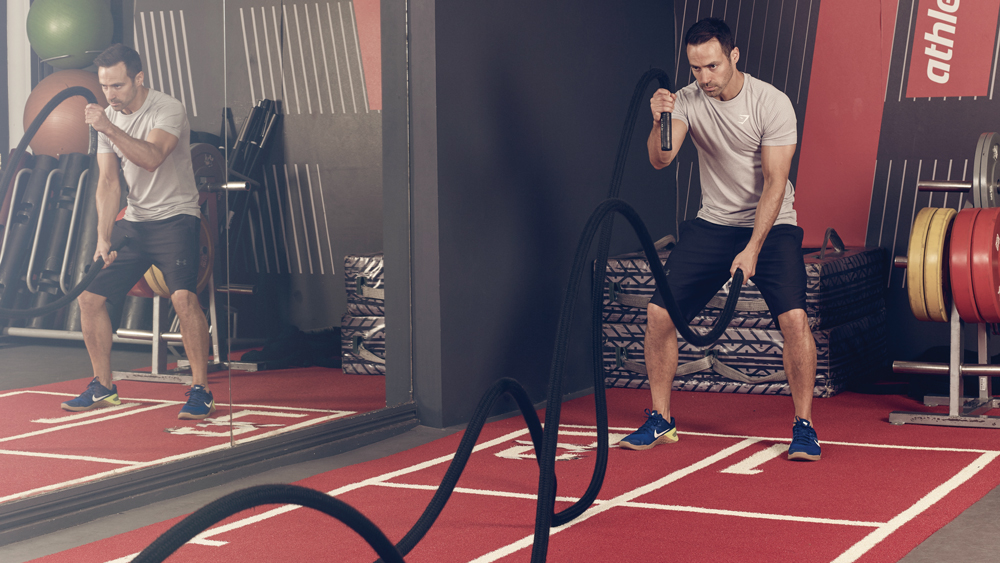
After I staggered out of the gym, life tried to trip me up. I had two days of meetings at a trade fair, which meant healthy eating was difficult and training time was under pressure. Then I was off to Germany for another expo, getting up at four in the morning to catch a flight and returning at the end of the day. Unfortunately, my flight back was delayed by over four hours so we didn’t take off until after 1.30am. I crawled into bed just as the birds were finding their singing voices and my throat felt like it was on fire. I was ill for the rest of the week, which meant no training and endless cravings for simple carbs.
I faced a decision: force myself to the gym and risk making myself feel worse, or take a couple of rest days and hope that would be enough time to recover. I opted for the latter and it seemed to do the trick. Determined not to let that mini-setback derail my plans, I stepped up my work rate and tried to claw back lost gains. The intention was great but the outcome was not – during an aggressive flye set in week six I suffered a minor pec strain. I could still do chest exercises but I had to hold back, making it almost impossible to build new muscle.
Thankfully the niggle coincided with me outgrowing that toddler response to the new nutrition regime. My body had adapted and it was less carb-reliant. My energy levels were up, my work capacity improved and I embraced the idea that I had two weeks to make sure that I finished the plan with no regrets.
Body of evidence
One of the happy things I can report about doing a transformation challenge is that it gets progressively easier. The second half is easier than the first and the final fortnight is the easiest of all. You’re fitter, you’re focused and your body has adapted to your new way of eating. I no longer felt exhausted in the evenings and I was sleeping soundly, waking up naturally and energised at 6am. I was getting compliments too. People who hadn’t seen me for a few weeks noticed that I looked leaner and healthier. Even personal trainers at the gym I was using were asking me about my workout plan.
The end was in sight and I was training harder than ever but, unexpectedly, it felt great. I felt great. During the final week it seemed like every day made a noticeable difference to how I looked and, for the first time since the project started, I felt like I was going to get the result I was hoping for.
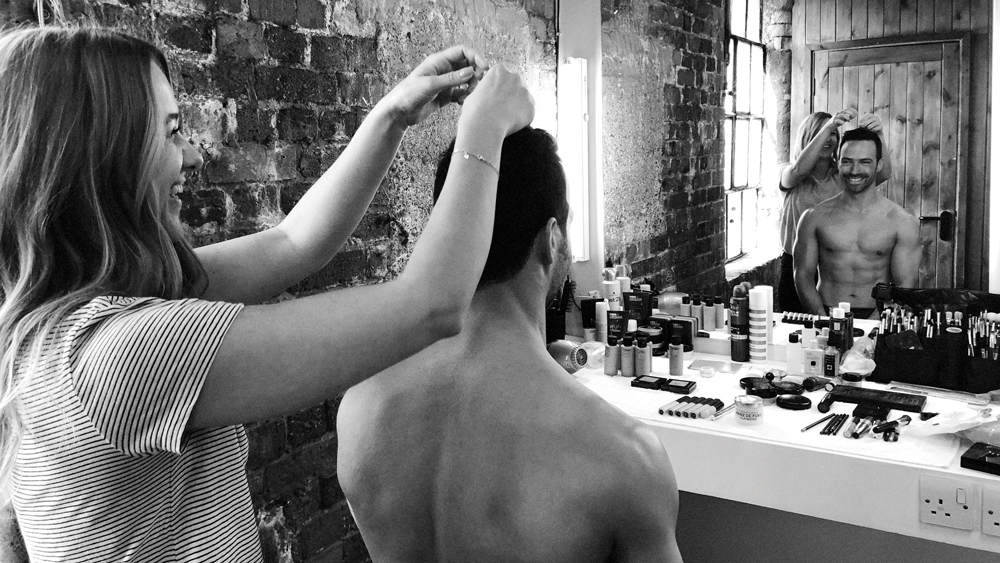
The shoot for this story was arranged for the final day of the plan and when it came around I didn’t hit my expectations – I smashed them. The result was better than I could ever have imagined. When I looked in the mirror I couldn’t quite believe what I was seeing. When the images started to feed through from camera to computer in the photography studio, it felt like I was looking at someone else’s body.
The before and after shots you’ve seen capture the physical change I made to my body. What they don’t show you is that I transformed my life too. I feel ten years younger. I’m energised. I’m calm. I’m happy. I’ve achieved more than I thought possible in the last eight weeks and I feel like if I can do this, I can do anything. I did what I thought was impossible and, if I can do it, I assure you that you can too. My only regret? That I didn’t do it ages ago.
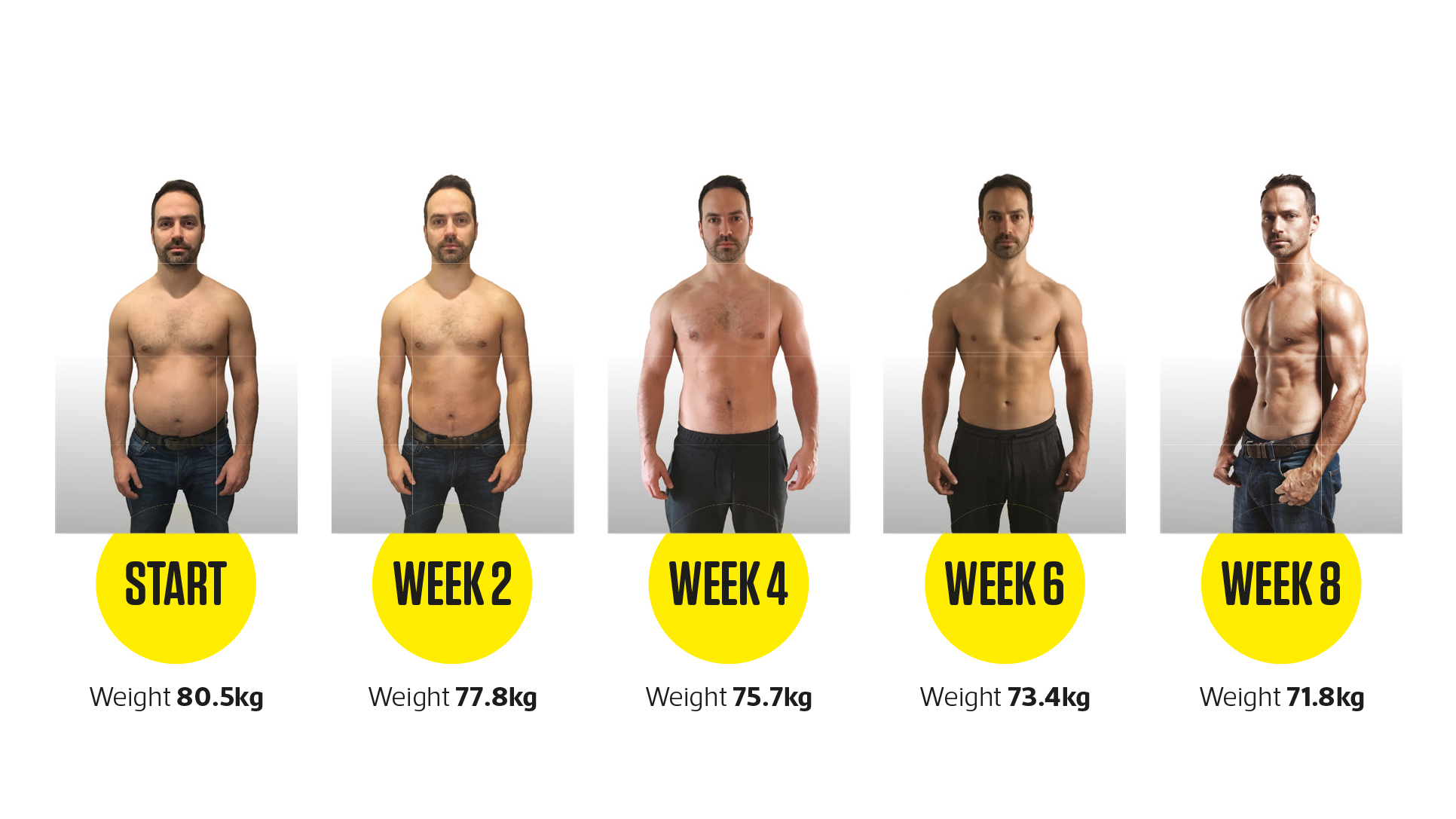
See Related
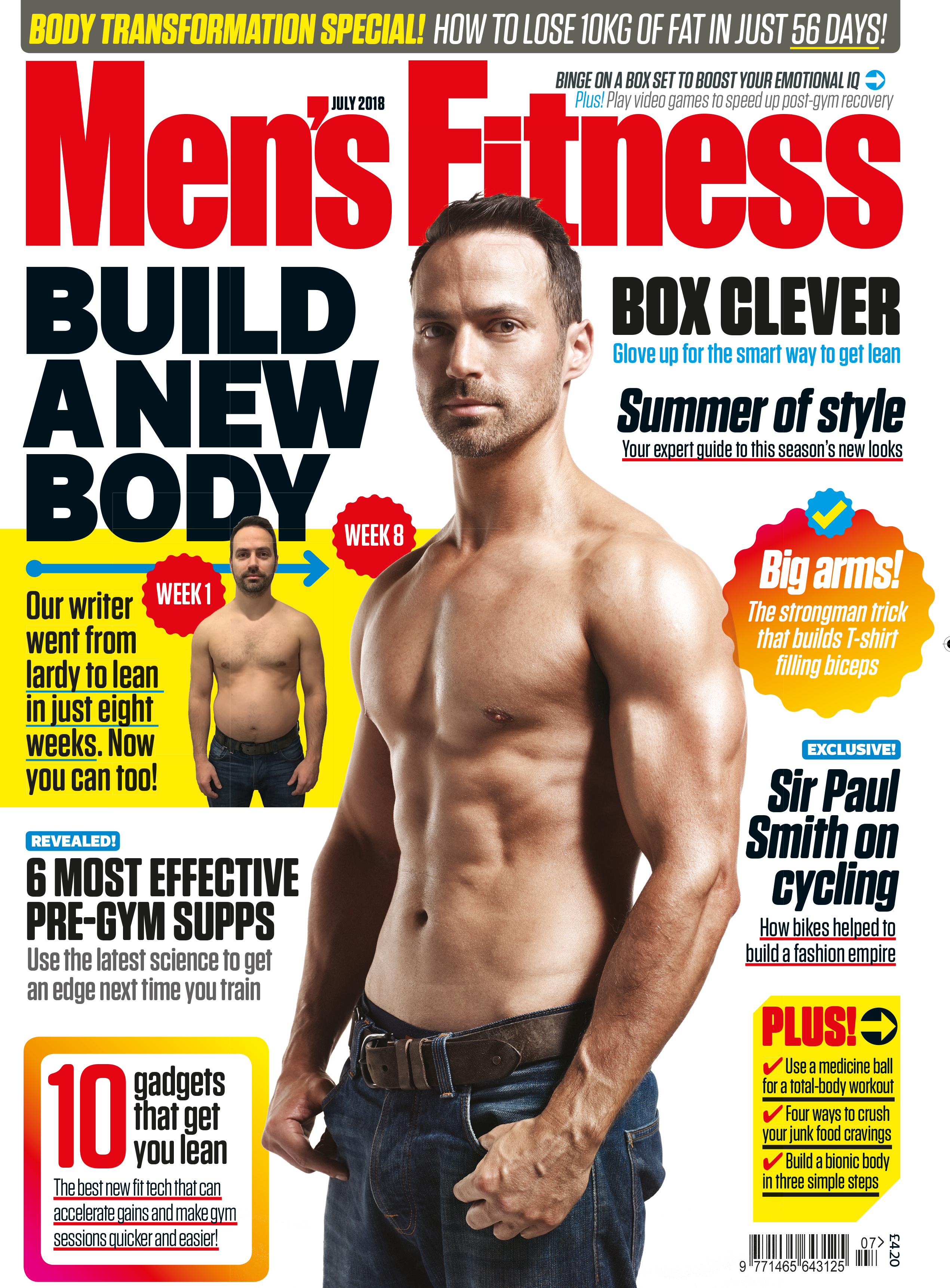
Jon Lipsey worked for Men’s Fitness UK, which predated, and then shared a website with, Coach. Jon was deputy editor and editor from 2007 to 2013. He returned as editor-in-chief from 2016 to 2019. He also co-founded IronLife Media and the New Body Plan.
